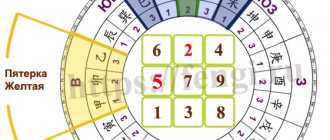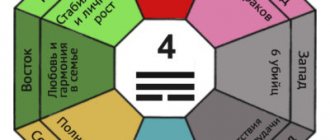Interpretation of misappropriation
What is msheloimstvo, how to translate the word into modern Russian? This word is interpreted in two ways:
- self-interest;
- property.
In the modern understanding, this word means greed, a passion for acquiring things. Moreover, these things may not be useful to the moss-eater, but he still acquires them.
Find out what awaits you today - Horoscope for today for all zodiac signs
Due to numerous requests from subscribers, we have prepared an accurate horoscope application for mobile phones. Forecasts will arrive for your zodiac sign every morning - it's impossible to miss! Download for free: Daily Horoscope 2020 (available on Android)
There is another interpretation of this ancient word, and it is associated with moss - mossy. This means that a person collects old things that no one needs, that are already mossy - overgrown with moss and dirt. Some people may have their entire apartment filled with these unnecessary things.
The Msheloimets collects unnecessary things for the sake of the collecting process itself: he is fascinated by the action, not the result.
There are people who fill bins (basements, attics, pantries) with food “for a rainy day,” which does not come. Products simply disappear and do not benefit anyone.
Etymology of the word
As Wikipedia and other popular sources indicate, the word etymologically goes back to mshelo, that is, to the meaning of “property, object,” and also in Church Slavonic this word is interpreted as “self-interest, benefit.”
In addition, words such as mossy and hence mossy, that is, overgrown with moss, should be noted. In Russian, mossy is often indicated in a figurative sense when talking about something that has deteriorated, fallen into disrepair, or been forgotten.
Interesting! The meaning of the word Covetousness and what it is in Orthodoxy
For example, if we read somewhere “at the back of the closet stood his mossy hiking boots,” then it becomes clear not just what these boots look like, but also the state of affairs. A person who gave up hiking a long time ago is no longer interested in this hobby, it is forgotten. Thus, the original meaning of the word allows us to understand what this sinful passion is.
This is about:
- desire for hoarding, self-interest;
- excessive acquisition of property;
- accumulation of various items, many of which may become “overgrown with moss” and turn out to be unnecessary;
- passion for obtaining happiness from the acquisition of various property;
- comparing oneself with one’s own property and objects, the more property – the more developed the personality, the better the person.
Unnecessary things in the house
In simple terms, we should compare this destructive tendency with the currently popular passion of consumerism.
Note! Hand in hand with money-grabbing comes extortion, that is, the intention to obtain benefits from other people by deception, using one’s own position for one’s own benefit.
If a person becomes a covetous person (a clear example is a bribe-taker), then he also becomes a money-seeker and falls under the power of Mammon (wealth).
The popularity of consumerism in this world is not something surprising for a believer. After all, famous biblical characters constantly tempt each person individually and humanity as a whole, trying to direct them to the path of sin. In this regard, consumerism is now even praised on television screens and in various other ways.
Interesting! Why and what is communion in church: rules of the sacrament
Sins in Orthodoxy
The word money-grabbing is found in the evening prayer, which must be read daily before going to bed. This word denotes a passion for acquiring things that are unlikely to be used in everyday life. Something like Plyushkin and Korobochka in Gogol’s “Dead Souls”.
However, this sin (passion) is not as harmless as it seems. The church fathers compare it with the love of money, which leads to spiritual death. Because the passion for acquiring things leads to another passion - covetousness, acquisitiveness, foul profitability. A person obsessed with materialism will look for financial means to satisfy his vicious passion, but will not be able to satisfy it completely. Because the joy from satisfying sinful whims is insatiable and does not last long, and a person again needs to acquire something.
Not only does money-grubbing distract an Orthodox believer from thinking about God, but it also leads to an unrighteous path and can completely lead away from faith. The heart of man has been deceived by earthly riches, things, money. His heart no longer belongs to God, it belongs to Mammon. The god Mammon was dethroned by the sacrifice of Jesus Christ, but in the hearts of some believers he continues to live. Because they resurrect him with their unrighteous thoughts and desires.
It is not for nothing that this sin is mentioned in the evening prayer rule, which the believer should repent of. Because unrepentant sin takes root in a person’s consciousness and leads to an even greater fall from grace.
This prayer was originally composed for monks, who in former times loved to surround themselves with luxurious objects that had no use in everyday life. It is precisely to the eradication of this destructive passion that repentance for molesting is dedicated. Why did the monks fall into this delusion? Because many of them had noble roots and were accustomed to living in luxury.
True understanding
In each of these examples, you need to clearly understand the difference between sin and reasonable behavior. For example, one should not blame every zealous family man and say that such money-grabbing and hoarding is contrary to faith. For a family person, and indeed for anyone who has the ability to provide for themselves and loved ones, this is a basic task.
Note! Refusing money-lending does not mean completely throwing out all items from the house, or not striving to provide for yourself at all.
Refusal from sin implies an understanding that material values are less important than spiritual ones. You need to take care of the material side, but within reasonable limits, so as not to burden anyone and carry out worldly affairs, to be able to help others.
As many know, even the saints always engaged in righteous work and could not deny themselves anything, but were content with little. Thus, Seraphim of Sarov had his own garden and provided himself with food, not needing anything; the Optina and Athos elders and monastics also do housekeeping and handicrafts, thanks to which they can help others. For example, according to the lives of famous elders, they often treated and received a huge number of pilgrims; the elders received their property through their own labor.
Interesting to know! Where is the Monastery of David's Hermitage: address and schedule of services
What is the danger of misappropriation?
Why is hoarding considered a sin if the person does not harm anyone? Because hoarding:
- it is pleasing one's whims;
- distracts from thinking about God;
- creates a cult of things.
Here are listed three dangers to the soul of an Orthodox believer. Firstly, pleasing one’s whims leads away from faith into worldly vanity. Secondly, it distracts from faith in God. Thirdly, he creates an idol for worship.
Everything that leads a person away from true faith ends in idolatry.
Also, mshel theft turns a living space into a kind of museum with exhibition exhibits, because these things are not suitable for domestic use or are not used.
But idolatry is especially dangerous. In the understanding of modern people, an idol is a certain figurine made of stone or wood. But this is not true at all. An idol can be a style, a hobby, a passion. Because an idol is something that replaces faith in the living God.
From materialism to bribery
In the modern world, shopaholism, which at first glance seems completely harmless, belongs to miscellaneous behavior. However, for shopaholics, shopping in supermarkets becomes the meaning of life. They monitor promotions and sales, Black Fridays and discounts - they devote all their free time to this. Some shopaholics fly to other countries, regularly paying for shopping tours. Women obsessed with shopping acquire a huge number of new things that they are not able to wear even once. But it is impossible to stop them from shopping.
Pathological passion for things leads to spiritual slavery - money-grubbing.
As soon as one sin takes root in a person’s soul, others follow it. Bribery is the receipt of funds for the purpose of bribery or outright bribery. Bribery is considered a type of bribery, because over time a person gets used to gifts and becomes dependent on things. He admires them, enjoys them and requires regular replenishment.
If gifts are not given voluntarily, a person may be inclined to extort or beg. Collecting various things gives a person a special status and weight in society: he is proud of them, shows them to his friends and enjoys their admiration.
The passion for collecting also applies to mush-looting. A person can buy exhibits or antiques for a lot of money that no one will see. They are often hidden in a safe to prevent them from being stolen. Why buy something that is not useful, a person cannot answer.
Various options
When considering any passion in Orthodoxy, one should not interpret such an inclination simply as a certain type of behavior imposed from the outside. Everything has a spiritual basis and even a reflection in the human mind. To make the multidimensionality of this sin clear, we will give various typical examples that many could even see or easily imagine.
Informative! When they read the rule of Basil the Great against the desecration of women
Perhaps someone has heard about people who turn their own home into a real warehouse, where it becomes difficult to move, since the owners drag a bunch of different things into the house under the pretext “they will come in handy later” or “why do others throw away such valuable items.” With this example, it becomes clearly clear what kind of sin this is , this is its most severe form.
Although it may look quite decent and socially acceptable, for example, wealthy people make a huge amount of purchases. Every time they buy an attractive product from a TV store, they regularly shop at sales, and they bring a bunch of unnecessary souvenirs from everywhere. They are wealthier, so they can afford to buy various little things, but in essence, they are no different from the previous example, because they also accumulate a bunch of unnecessary items.
This is interesting! Bible stories: who is Judas?
In any case, we are talking about obtaining happiness through household items or luxury, filling the inner emptiness not with faith, but with some completely unnecessary material values. One way or another, outwardly this sin does not look particularly attractive.
In general, erudition, of course, can be beneficial and should not be neglected, as well as education. However, one should not look for such erudition as an unnecessary accumulation of knowledge. Sometimes people even accumulate in their minds not useful knowledge, but simply some stories, anecdotes. In general, we are talking about a kind of cluttering of your mind, which does not provide anything useful.
The mind should be filled with prayers, reflections and higher or simply some kind of common sense. By the way, the modern era is actively imposing mental fraud on people. There are various news and entertainment programs coming from everywhere. In this way, mischief grows in the human mind and leads away from the truth.
Unnecessary accumulation of knowledge does not provide anything useful
Many, especially those living in the territory of modern Russia and other countries of the USSR, remember the times when it was difficult to get various goods, a period of financial shortages and food shortages. With this in mind, people still, as if by inertia, accumulate a bunch of items and products at home. This actually manifests a lack of faith and money-grubbing, because people do not believe in the protection of the Lord and therefore strive to accumulate various things in order to have what they need in difficult times.
Nasty profitability
This is making a profit through illegal or unworthy means. Some people are inclined to such sin for the sake of money-grubbing, that is, acquiring things. If there is not enough money for purchases, a person begins to either steal it or get it by deception. Bad profit includes:
- body kit;
- counting;
- deception;
- measurement;
- buying stolen goods;
- forgery of documents;
- counterfeit money.
The gambling industry is classified as bad profit - casinos, card games for money, etc. Everything that ignites passion becomes an object of profit.
This sin includes using one’s official position or authority for the purpose of illegal enrichment.
Why is this sinful?
Spiritual fathers give several reasons why such a vice is considered a sin. The main one is the non-use of things for their intended purpose. After all, money-grabbing is simply the storage of collected, purchased or donated items that were created for the purpose of serving people. Violation of purpose is neglect of the Lord's instructions. Further: things should be acquired when necessary, and not for the sake of satisfying a morbid inclination. And most importantly, a person becomes attached to objects, begins to serve them and his passion, although he should serve God. Here it is appropriate to remember about “do not create an idol for yourself,” and such unbridled accumulation is already quite similar to the worship of an artificially created idol.
Extortion
This is also a sin akin to vengeance. Only in this case does a person enrich himself from the grief or hopeless situation of another.
Covetousness includes:
- usury;
- understatement of wages;
- marking up price tags;
- theft;
- corrupt practices.
Covetousness is a pathological greed that completely consumes a person’s conscience. It doesn’t matter to him that he robs another and leaves him with nothing. It doesn’t matter to him that he takes away the last thing from a person. The covetous man is so absorbed in the thirst for profit that this becomes the true purpose of his life. The passion for profit absorbs a person so much that he does not see anything around him. He needs more and more, there is no end to this desire. There is no feeling of satiety and satisfaction.
To get rid of this passion, you first need to acknowledge it. A person must understand that he is caught in the net of sin and cannot stop. After realization, it is necessary to return what was taken and stolen. If this cannot be done, you need to engage in charity or simply do deeds of mercy.








